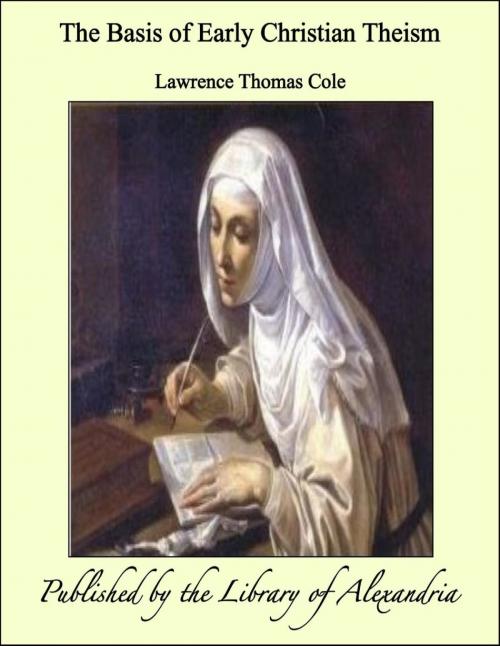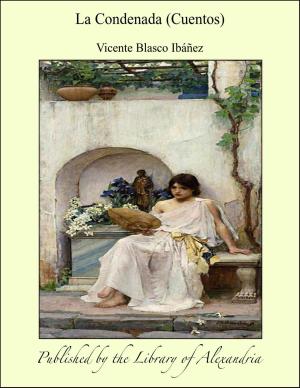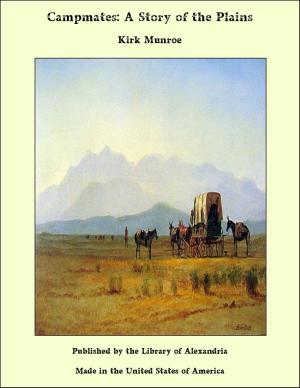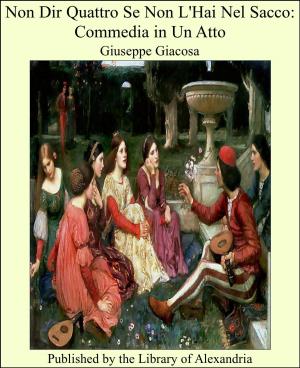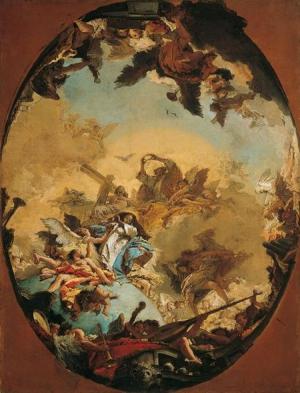The Basis of Early Christian Theism
Nonfiction, Religion & Spirituality, New Age, History, Fiction & Literature| Author: | Lawrence Thomas Cole | ISBN: | 9781465561534 |
| Publisher: | Library of Alexandria | Publication: | March 8, 2015 |
| Imprint: | Language: | English |
| Author: | Lawrence Thomas Cole |
| ISBN: | 9781465561534 |
| Publisher: | Library of Alexandria |
| Publication: | March 8, 2015 |
| Imprint: | |
| Language: | English |
A question which every author ought to ask of himself before he sends forth his work, and one which must occur to every thoughtful reader, is the inquiry, Cui bono?—what justification has one for treating the subject at all, and why in the particular way which he has chosen? To the pertinency of this question to the present treatise the author has been deeply sensible, and therefore cannot forbear a few prefatory words of explanation of his object and method. In accounts of the theistic argument, as in the history of philosophy in general, it has been customary to pass over a space of well-nigh ten centuries of the Christian era in silence, or with such scanty and unsympathetic notice as to make silence the better alternative. Largely through the influence of such treatment as this, we moderns have almost forgotten at times that during this period there lived men inferior to none in history in endowments of mind and influence on succeeding generations, and that there then took place some of the most significant and far-reaching intellectual conflicts in the history of thought. "With Cicero," says Professor Stirling, "we reached in our course a most important and critical halting-place.... We have still ... to wait those thousand years yet before Anselm shall arrive with what is to be named the new proof, the proof ontological, and during the entire interval it is the Fathers of the Church and their immediate followers who, in repetition of the old, or suggestion of the new, connect thinker with thinker, philosopher with philosopher, pagan with Christian." To attempt to account for even one of the details of thought during this period cannot be without its advantages.
A question which every author ought to ask of himself before he sends forth his work, and one which must occur to every thoughtful reader, is the inquiry, Cui bono?—what justification has one for treating the subject at all, and why in the particular way which he has chosen? To the pertinency of this question to the present treatise the author has been deeply sensible, and therefore cannot forbear a few prefatory words of explanation of his object and method. In accounts of the theistic argument, as in the history of philosophy in general, it has been customary to pass over a space of well-nigh ten centuries of the Christian era in silence, or with such scanty and unsympathetic notice as to make silence the better alternative. Largely through the influence of such treatment as this, we moderns have almost forgotten at times that during this period there lived men inferior to none in history in endowments of mind and influence on succeeding generations, and that there then took place some of the most significant and far-reaching intellectual conflicts in the history of thought. "With Cicero," says Professor Stirling, "we reached in our course a most important and critical halting-place.... We have still ... to wait those thousand years yet before Anselm shall arrive with what is to be named the new proof, the proof ontological, and during the entire interval it is the Fathers of the Church and their immediate followers who, in repetition of the old, or suggestion of the new, connect thinker with thinker, philosopher with philosopher, pagan with Christian." To attempt to account for even one of the details of thought during this period cannot be without its advantages.
